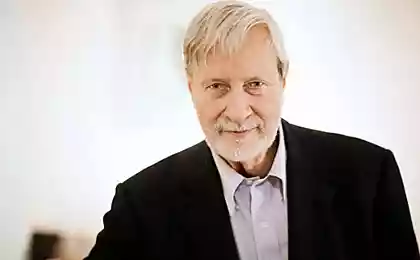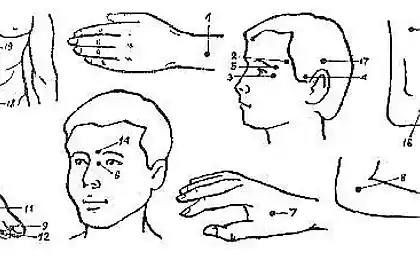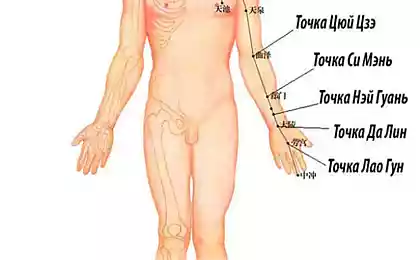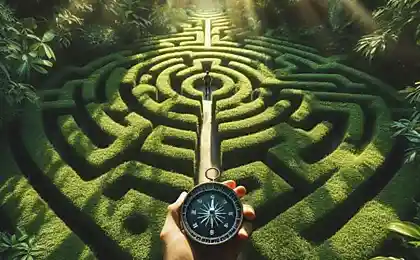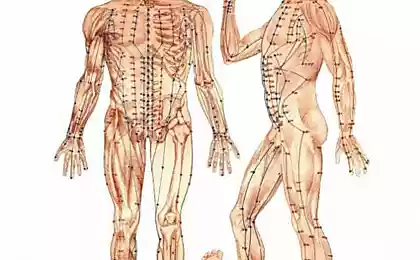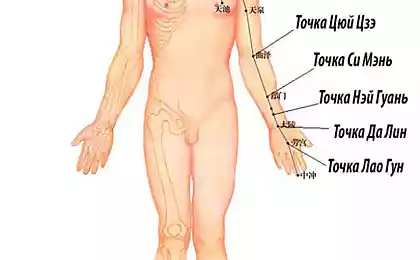833
Martin Heidegger: what it really means to "think"
Martin Heidegger about what it means to truly "think", why people prefer to escape from the thoughts and what consequences this rejection o thinking can lead in the era of "ominous changes in the world," the "radical revolution ideology", in the age of technology, the strength of which has long been outgrown our will and ability to make independent decisions.
"Detachment" — the text of Martin Heidegger, which is based on a speech delivered at the celebration of the 175th anniversary of the birth of composer Conradin Kreutzer on 30 October 1955 in Mescere
Conradin Kreutzer (1780 — 1849) — prolific composer, was born in Mescere, the hometown of M. Heidegger; some of his choirs, and Opera and is now well known in Germany.
It would seem, may be associated oration dedicated to the memory of the musician, and the problem of estrangement? But Heidegger and Heidegger to be subjected to deeper analysis and reinterpretation of the existing philosophical ideas, but all aspects of life, deconstructing them and trying to get to the fundamentals and essence.
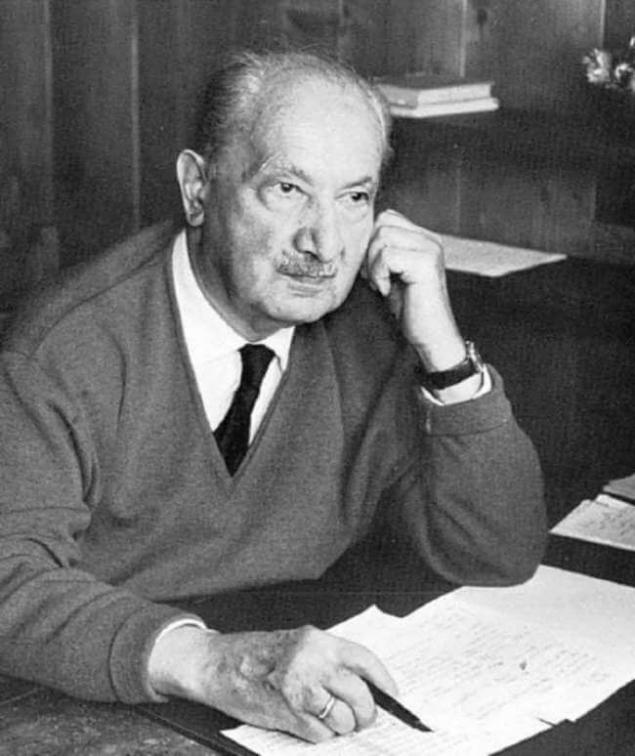
So in this case, Heidegger is considering a celebration in memory of someone as a situation that requires human thought. But here arises several questions: what it really means to "think", do we know how to do it, not whether we have lost this ability, why modern people prefer to flee from thinking, to what in the end it may lead? Further — more, if the person losing the old ground from under the feet and refuses interpreting of thinking, to resist the irresistible forces of technology, what "detachment" and why she, along with openness to mystery, so important to the new perspective on tehnizirovannyh the world of cars and what to do with yourself and things requires from us is a global change in the world.
In General, read Heidegger and include o thinking.
Detachment
The first thing I can say his hometown is gratitude. I thank my homeland for all that she gave me in a distant way. What kind of dowry, I tried to explain in the pages of the article "Country road" in the anniversary edition, which appeared in the centenary of the death Conradin Kreutzer. I thank Mr. Sule mayor for his cordial greeting and for the honour which I had to speak with a memorable speech at today's celebration.
Dear Assembly!
Dear compatriots!
We are gathered here in celebration of our countryman, composer Conradin the Kreutzer. To honor such a person — a creative person, we must first appreciate his works. So, to celebrate the musician, one must listen to his music.
Today we will hear works Conradin Kreutzer — his songs and choruses, chamber music and Opera music. These sounds present the composer himself, because truly the master is only present in his work. And if it is really a great master, then his personality disappears completely behind his work.
Singers and musicians involved in today's celebration, will be the guarantors that works Conradin Kreutzer will sound for us today.
But will it be the triumph at the same time, and memorable? After the celebration in memory of someone means that we think.
Gedenkfeier — a celebration in memory of someone, formed from the verb gedenken to remember, to remember someone, which also has a value — to think, hence the requirement of M. Heidegger's thinking on the celebration in memory of C. Kreutzer.
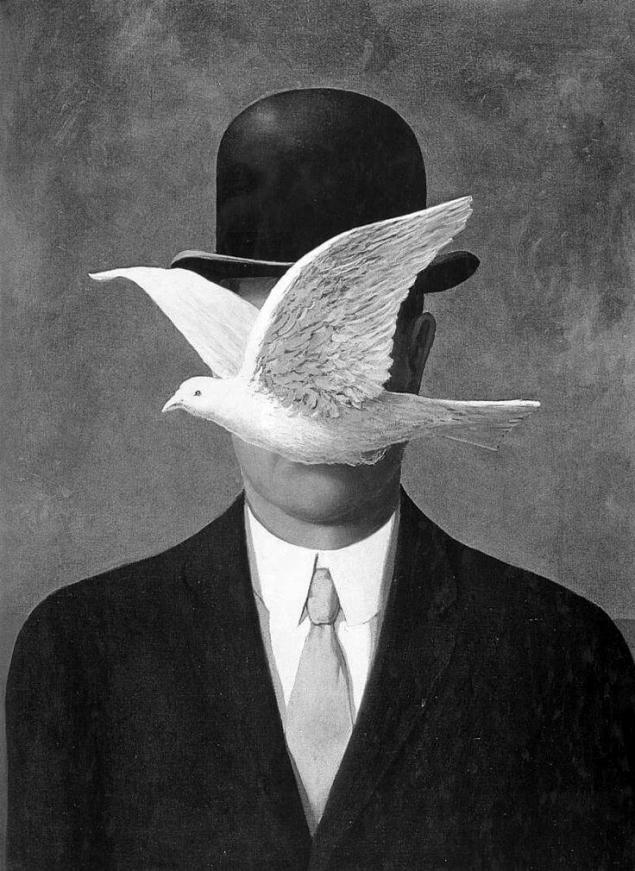
So what we should think and speak on honoring the memory of the composer? Music is no different in that it can "speak" just the sound of his sounds and how she needs a common language — the language of words? It is so commonly believed. And the question still remains: will the music and singing to transform a celebration in a memorable, is that we think? Might not be able. So the memorable speech, and was included in the festival programme. It is specifically supposed to help us think about honoring the man and his works. Such memories come to life when once again retell the story of the life Conradin Kreutzer, list and describe his works. Listening to such a narrative, we experience joy and sorrow, we learn much that is instructive and useful. But really we're just having fun. Listening to a story does not necessarily think, you do not need to think about how that relates to each of us individually, directly and permanently into his own being. Thus, even a memorable speech can't be a guarantee that we will think on a memorable celebration.
No need to fool ourselves. We all, including those who think in the line of duty, quite often a poor thought, we too easily become mindless. Thoughtlessness — the evil guest, which are found everywhere in today's world, because today the knowledge of everything is available so quickly and cheaply that in the next moment obtained in the same way and quickly forgotten. So one meeting after the other. Commemorative festivals are becoming poorer and poorer thought, so now the commemorative meeting and thoughtlessness already inseparable.
But even when we are thoughtless, we do not lose our ability to think. We will definitely use, but, of course, in a special way: in thoughtlessness we leave the ability to think uncultivated, fallow. But only some can lie fallow, that can become soil for the growth, for example, arable land. Expressway, where nothing grows, can never lie fallow. How deaf we can only because they have a hearing impairment and growing old — only because he was young, in the same way we can become poor thoughts, and even mindless, just because the Foundation of his existence man has reasoning power, "the spirit and mind," and thinking was intended. We can lose or as they say, to get off just from what we possess, whether we know about possessed or not.
The growing thoughtlessness stems from a disease, eroding at the heart of modern man. Man today is in flight from thinking. This flight from thinking is the basis for thoughtlessness. It is the flight that the person it and does not want to see and not recognized it himself. Today's man will flatly deny this flight from thinking. He would argue the opposite. He will say — having every right to do what has never been such far-reaching plans, so many studies in various fields, held so passionately as today. Of course, so to spend money on cunning and inventing in its own way very useful and beneficial. Without such thinking can not do. But it is also true that this is just a special kind of thinking.
Its specificity consists in the fact that when we plan, research, build production, we always considered these terms and conditions. We take them into account on the basis of a particular purpose. We expect certain results. This need to count is the hallmark of the thinking that plans and investigates. This kind of thinking is costing, even when it does not use numbers and do not use a calculator or computer. Counting thinking calculates. It continuously calculates new, more promising and profitable opportunities. Evaluates thinking "drives" one opportunity after another. It is easy to think again, to recover. Calculating the mind is not interpreting thinking, it is not able to think about the meaning that reigns in everything that is.
So, there are two kinds of thinking, and the existence of each of them is justified and necessary for certain goals:
This is what o think we mean when we say that man today is in flight from thinking. You can still argue, in itself, interpreting the reflection hovers above reality, it has lost ground. It will not help us to cope with daily Affairs. It is useless in practical life.

And finally, they say that pure meditation, a strong understanding of "above" the usual reason. The last excuse is true only what is o thinking is not, as well as calculating. For o thinking sometimes required higher effort. It requires a longer exercise. It requires a more sensitive and caring than any other real craft. And it must be able to wait, like waiting for the farmer shall seed you will harvest.
And yet anyone can get in the way of thinking in their own way and within its limits. Why? Because man is a thinking, i.e., o creature
das Nachdenken besinniiche — "the thinking behind something (with something)".
To meditate, we are not required to "jump through". Enough to stop nearby and think about the closest: that concerns each of us here and now, here, on this piece of their native land, now — at this hour in world history.
Thoughts on what will bring us this holiday, of course, in that case, if we are willing to change their mind? We will see that the artwork has matured on the soil of their homeland. If we think about this simple fact, then we will think about that over the last two centuries has generated great Swabian poets and thinkers. If we reflect further, we find that Central Germany the same ground, exactly like East Prussia, Silesia and Bohemia.
We wonder and ask: could it be, any real creation is rooted in the soil of his native land? Johann Gebel once wrote: "We are plants which — whether we realize it or not — should be rooted in the ground below rises to bloom in the ether and to bear fruit" (Werke, ed. Altwegg, III, 314).
The poet wants to say: to human labor had indeed had a joyful and healthful fruits, man has to ascend in the air from the depths of his native land. Ether here means the free air of the heavens, the open realm of the spirit.
We think even more and ask: what is today with what said Johann Peter Goebel? Still people silently dwells between heaven and earth? Still reigns on earth o spirit? Is there still a homeland, in the soil where the roots of man, in which it is rooted?
boden-standig, a native, local resident (the literal translation is "standing on the ground").
Many Germans have lost their homeland, they had to leave their towns and villages, they were expelled from their native land. Many others whose homeland was saved, yet fell away from her, trapped in the bustle of big cities, they had to settle in the wilderness of the industrial areas. And now they are strangers to their former homeland.
And those who stayed at home? Often they are even more rootless than those who were expelled. Hour after hour, day after day they spend at the TV and radio, focused on them. Once a week movie takes them in unusual, often only for its vulgarity, an imaginary Kingdom, trying to replace the world, but that is not the world. "Illustrated newspaper" available to all. As with all means of modern media every hour, and stimulate the person step on it and drive it — everything today is closer to man than of arable land around his yard, than heaven is above earth, closer than the night day, what the customs and traditions of his village, than the tradition of his native world.
We think more and ask: what is happening here — as with people, torn from their homeland and those who remained in their native land? Answer: now under threat is the very rootedness of today's man.
die Bodenstandigkeit — residence, the noun form of bodenstandig.
Moreover, the loss of roots is not only caused by external circumstances and destiny, it is not only from the negligence and superficiality of a person's lifestyle. The loss of firmness comes from the spirit of the age in which we are born.
We think more and ask: if so, can still continue the man and his creations is rooted in the fertile soil of the Motherland and to reach for the air, into the open heavens and the spirit? Or all falls into the clutches of planning and calculation, of organization and automation?
Thinking that tells us this celebration, we will see: our age is threatened by the loss of roots. And we ask: what is actually happening in our time? How is it different?
Century, which now begins, was recently named the atomic age. His most persistent sign, atomic bomb, but it's the only obvious sign, so as immediately recognized that nuclear energy can be used for peaceful purposes. Today, nuclear physicists around the world are trying to make peaceful use of it on a large scale. The large industrial corporations of the leading countries, England in the first place, have decided that nuclear energy can become a giant business. In the nuclear industry saw a new happiness. Nuclear physics will not remain on the sidelines. It openly promises to us. In July of this year on the island of Mainau eighteen Nobel prize winners declared in his message verbatim: "Science (i.e. modern science) is the path to the happiness of mankind".
As is the case with this statement? Whether it arose from reflections? Thinking whether it is about the meaning of the atomic age? No. If we are satisfied with this statement of science, we remain as far away from the understanding of the present century. Why? Because to think we forgot. Because we forgot to ask: thanks to modern technology, based on science that can open in nature and release new forms of energy?
This became possible due to the fact that during the last centuries there is a revolution in main views; the man was transplanted into another reality. This radical worldview revolution has occurred in modern philosophy. From this stems a completely new situation of man in the world and towards the world. The world now appears as an object open to the attacks calculates thought, attacks, before which nothing can resist. Nature has become a giant petrol station, the energy source for modern technology and industry. It is, in principle, technical, man's relation to the world a whole first appeared in the seventeenth century and, moreover, only in Europe. It was long unknown to other continents. It was completely alien to past centuries and the fate of Nations.
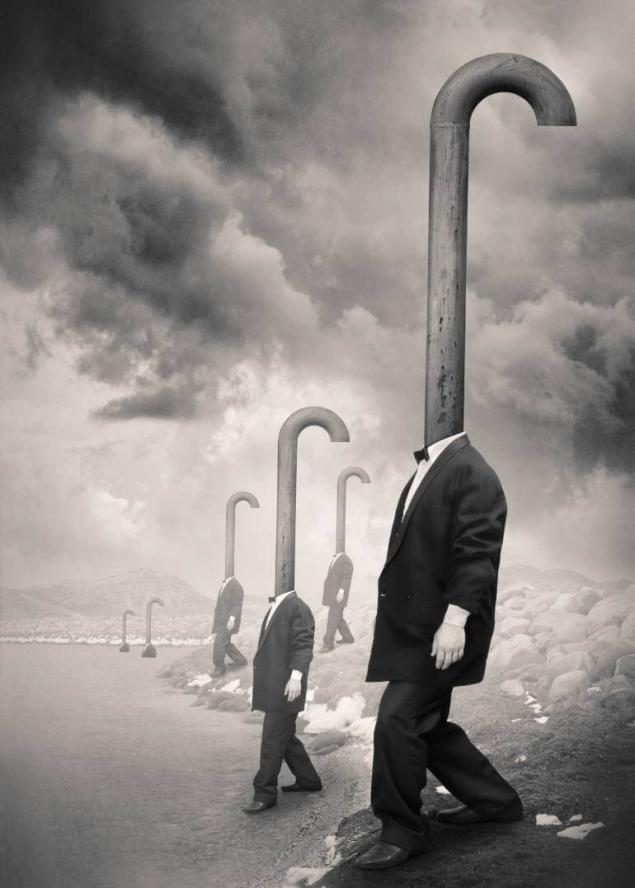
The power concealed in modern technology determines the relation of man to what is. Its dominance extends across the earth. People are already starting their promotion from the ground to the world. Thanks to the discovery of atomic energy, for some twenty years become known to such enormous sources of energy that in the foreseeable future global demand for energy of any kind will be satisfied forever. Soon the production of energy, unlike coal, oil, wood, and more will not be tied to any particular country or continent. In the foreseeable future in any place of the globe it will be possible to build a nuclear power plant.
So now the main problem of science and technology is no longer where to get enough fuel. Now the decisive problem is: how we can curb and how we learn to manage these incredibly giant atomic energy so as to guarantee humanity that the enormous energies suddenly — even in the absence of military action — in some place don't get out, "I will not run away" and destroy everything?
If the harnessing of atomic energy will be successful — and it will be a success! in the technical development of the world will start a brand new era. What we now know as the technique of films and television, transport, particularly air, media, medical and food industry, is probably just a miserable start. The coming upheavals are difficult to predict. Meanwhile, technical progress will go forward faster and faster and it does not stop. In all spheres of his existence man will be surrounded by more tightly by the forces of technology. These forces, which everywhere continually require a person, tied him to her, pulling him along, and precipitated him and imposed on him under the guise of those or other technical devices — these forces have already outgrown our will and ability to make decisions, because no man created them.
But to a new world of technology belongs also that his achievements the fastest way to become known and attract public interest. So today, everyone can read what is being said in this speech about the technique in any skillfully published by illustrated magazine, or hear this speech on the radio. It is one thing to hear or read, i.e. just to learn something, another to understand, i.e. to comprehend what we have read or heard.
This summer once again hosted the international meeting of Nobel prize winners, 1955 in Lindau. American chemist Stanley told her: "the hour is near when life will be in the hands of the chemist, who will be able to synthesize, split and change at will the substance of life."
We took note of this statement, we even admire the daring of scientific research, while not thinking. We don't stop to think that here with the help of technical means of preparing an offensive to life and the essence of man, which cannot be compared with even the explosion of a hydrogen bomb. Because even if the hydrogen bomb will not explode and human life on earth will persist, it is still an ominous change in the world inevitably coming along with the atomic age.
Scary actually, not that the world becomes fully tehnizirovannyh. Much more creepy is that the person is not prepared for this changing world that we are not yet able to meet omissus thinking that in fact only begins in this age of the atom.
To slow down the course of the atomic age, or to send it may not a man nor one group of men, no Commission of prominent statesmen, scientists and engineers, none of the conference of leading figures of industry and Commerce. No human organization is not capable to subdue this process.
So whether the person given the power of the unstoppable forces of technology, far exceeding his powers, confused and helpless? This will happen if people completely refuse to strongly oppose the costing o thinking. But only interpreting the thinking awakens, it must run continuously, in any, the most insignificant matter — and here, too, and now, on this memorable meeting, because it gives us the opportunity to reflect on what is under particular threat in the nuclear age, namely, the embeddedness of the works of man.
So we ask this question: can a person with the loss of old roots to find a new basis of dracoresene and standing, such a soil and a Foundation on which new way to flourish the essence of man and all his works, even in the atomic age?
What will be the basis and ground for future korenine? Perhaps what we are seeking is very close, so close that we just overlooked. After all, the way to what is close to us, the people, always the most distant and therefore the most difficult. It is a way of thinking. O thinking requires us not to cling one-sided for a single idea, to go with the familiar mental rut that we are racing farther and farther. O thinking requires us to engage in what, at first glance, has no relation to him.

Let's try interpreting thinking. Devices, apparatuses and machines of the technical world requires all of us — for some, more for others — in the least. It would be foolhardy to blindly attack the world of technology. It would be shortsighted to curse it as the devil's tool. We depend on technical devices; they even move us to new successes. But suddenly, and without realizing it, we are so tightly bound by them, that get them into slavery.
But we can and more. We may use technical means, while remaining free from them, so we can abandon them at any time. We can use these devices as they should be used, but to leave them alone as something that really has nothing to do with our essence. We can say Yes to the inevitable use of technical means and at the same time to say "no" because we forbid them to claim us, and thus to distort, confuse and lay waste our nature.
But if we say both "Yes" and "no" technical AIDS, then wouldn't that make our relationship to the world of technology is ambiguous and uncertain? On the contrary. Our attitude to the world of technology is wonderfully simple and relaxed. We let technical devices in our daily lives and at the same time leave them outside, ie leave them as things that are not absolute, but depend on something higher. I would say this attitude is both "Yes" and "no" to the world of technology the old word — "detachment from things"
die Gelassenheit zu den Dingen neologism M. Heidegger. The modern meaning of Gelassenheit — calmness, composure, coolness, in medieval German mysticism, it was used in the sense "to leave the world alone, as he is, not to interfere with the natural course of things and surrender to God." Other variants of translation: liberation, freedom from the things (equipment).
This relationship allows us to see things not only technically, it will allow us to see clearly that the production and use of machines demands of us another relation to things that are not pointless. For example, we understand that farming and agriculture became mechanized food industry, that here, as in other areas does a profound change in the relation of man to nature and to the world in front of him. But the meaning that reigns in this change remains dark.
So, in all technical processes is dominated by the sense that includes all human actions and behavior, not the person invented or created the meaning. We do not understand the value of an ominous strengthening of the power of atomic technology. The sense of the world of technology is hidden from us. But let us specially see and be drawn to the fact that this hidden meaning touches us everywhere in the world of technology, then we're inside the field, which is hidden from us, and hiding, comes out to us. And what is shown and at the same time shies away — isn't that what we call a mystery? I call the behavior through which we open to the meaning hidden in technology, openness to the mystery.
Detachment from things and openness to mystery is mutually due. They will give us the opportunity to dwell in the world differently. They promise us a new basis and ground for korenine where we can stand and withstand in the world of technology, not fearing it.
Detachment from things and openness to the mystery give us to see the new ground that one day, maybe even waswere in a different guise the old, now so rapidly disappearing.
However, so far (and we don't know how long it will last) person on this earth is in a dangerous position. Why? Because suddenly will erupt the third world war, which will lead to the complete destruction of mankind and destruction of the earth? No. The coming atomic age threatens us even greater danger, just in case, if the danger of a third world war will be eliminated. A strange statement, isn't it? Of course, strange, but only as long as we can't imagine.
In what sense is this statement true? And that rolls the technological revolution of the atomic age will be able to capture, to bewitch, dazzle and deceive a person so that one day calculates the mindset will remain the only valid and practiced way of thinking.
Then what great danger is coming on us? Indifference towards reflection and a complete thoughtlessness, the complete thoughtlessness that can go hand in hand with the greatest ingenuity that evaluates the planning and invention. And what then? Then the person will deny and will throw his deepest essence, is exactly what he is thinking being. So, the point is to save the essence of the person. So, the point is to support reflection.
However, detachment from the things and openness to the mystery never come to us by themselves. They will not fall to our lot by accident. They would grow only from the unremitting and decisive thinking.
Perhaps today's memorial meeting will spur us all on this way of thinking. And if we respond, then we will think about Conradine the Kreutzer thinking about the origins of his creative work, its roots, which fueled the forces of his homeland. And that is exactly we think of when we recognize ourselves in the here and now people, designed to find and prepare the way to the atomic age, through it and out of it.
If detachment from the things and openness to the mystery awaken within us, then we will reach the path that leads to a new ground for korenine and standing. On this basis, creativity can make new roots and bear fruit for centuries.
Also interesting: David Brooks: Live for your resume or for your Eulogy?
The latest article by S. P. Kapitsa. The article is too good to forget it
So in another century and different again fulfilled the words of Johann Peter Goebel:
"We are plants which — whether we realize it or not — should be rooted in the ground below rises to bloom in the ether and to bear fruit".published
Original: Martin Heidegger. Gelassenheit. Gunther Neske. Pfullingen, 1959. S. 11 — 281.
Translation: A. G. Solodovnikova, 1991.
P. S. And remember, just changing your mind — together we change the world! ©
Source: monocler.ru/haydegger-otreshennost/
"Detachment" — the text of Martin Heidegger, which is based on a speech delivered at the celebration of the 175th anniversary of the birth of composer Conradin Kreutzer on 30 October 1955 in Mescere
Conradin Kreutzer (1780 — 1849) — prolific composer, was born in Mescere, the hometown of M. Heidegger; some of his choirs, and Opera and is now well known in Germany.
It would seem, may be associated oration dedicated to the memory of the musician, and the problem of estrangement? But Heidegger and Heidegger to be subjected to deeper analysis and reinterpretation of the existing philosophical ideas, but all aspects of life, deconstructing them and trying to get to the fundamentals and essence.

So in this case, Heidegger is considering a celebration in memory of someone as a situation that requires human thought. But here arises several questions: what it really means to "think", do we know how to do it, not whether we have lost this ability, why modern people prefer to flee from thinking, to what in the end it may lead? Further — more, if the person losing the old ground from under the feet and refuses interpreting of thinking, to resist the irresistible forces of technology, what "detachment" and why she, along with openness to mystery, so important to the new perspective on tehnizirovannyh the world of cars and what to do with yourself and things requires from us is a global change in the world.
In General, read Heidegger and include o thinking.
Detachment
The first thing I can say his hometown is gratitude. I thank my homeland for all that she gave me in a distant way. What kind of dowry, I tried to explain in the pages of the article "Country road" in the anniversary edition, which appeared in the centenary of the death Conradin Kreutzer. I thank Mr. Sule mayor for his cordial greeting and for the honour which I had to speak with a memorable speech at today's celebration.
Dear Assembly!
Dear compatriots!
We are gathered here in celebration of our countryman, composer Conradin the Kreutzer. To honor such a person — a creative person, we must first appreciate his works. So, to celebrate the musician, one must listen to his music.
Today we will hear works Conradin Kreutzer — his songs and choruses, chamber music and Opera music. These sounds present the composer himself, because truly the master is only present in his work. And if it is really a great master, then his personality disappears completely behind his work.
Singers and musicians involved in today's celebration, will be the guarantors that works Conradin Kreutzer will sound for us today.
But will it be the triumph at the same time, and memorable? After the celebration in memory of someone means that we think.
Gedenkfeier — a celebration in memory of someone, formed from the verb gedenken to remember, to remember someone, which also has a value — to think, hence the requirement of M. Heidegger's thinking on the celebration in memory of C. Kreutzer.

So what we should think and speak on honoring the memory of the composer? Music is no different in that it can "speak" just the sound of his sounds and how she needs a common language — the language of words? It is so commonly believed. And the question still remains: will the music and singing to transform a celebration in a memorable, is that we think? Might not be able. So the memorable speech, and was included in the festival programme. It is specifically supposed to help us think about honoring the man and his works. Such memories come to life when once again retell the story of the life Conradin Kreutzer, list and describe his works. Listening to such a narrative, we experience joy and sorrow, we learn much that is instructive and useful. But really we're just having fun. Listening to a story does not necessarily think, you do not need to think about how that relates to each of us individually, directly and permanently into his own being. Thus, even a memorable speech can't be a guarantee that we will think on a memorable celebration.
No need to fool ourselves. We all, including those who think in the line of duty, quite often a poor thought, we too easily become mindless. Thoughtlessness — the evil guest, which are found everywhere in today's world, because today the knowledge of everything is available so quickly and cheaply that in the next moment obtained in the same way and quickly forgotten. So one meeting after the other. Commemorative festivals are becoming poorer and poorer thought, so now the commemorative meeting and thoughtlessness already inseparable.
But even when we are thoughtless, we do not lose our ability to think. We will definitely use, but, of course, in a special way: in thoughtlessness we leave the ability to think uncultivated, fallow. But only some can lie fallow, that can become soil for the growth, for example, arable land. Expressway, where nothing grows, can never lie fallow. How deaf we can only because they have a hearing impairment and growing old — only because he was young, in the same way we can become poor thoughts, and even mindless, just because the Foundation of his existence man has reasoning power, "the spirit and mind," and thinking was intended. We can lose or as they say, to get off just from what we possess, whether we know about possessed or not.
The growing thoughtlessness stems from a disease, eroding at the heart of modern man. Man today is in flight from thinking. This flight from thinking is the basis for thoughtlessness. It is the flight that the person it and does not want to see and not recognized it himself. Today's man will flatly deny this flight from thinking. He would argue the opposite. He will say — having every right to do what has never been such far-reaching plans, so many studies in various fields, held so passionately as today. Of course, so to spend money on cunning and inventing in its own way very useful and beneficial. Without such thinking can not do. But it is also true that this is just a special kind of thinking.
Its specificity consists in the fact that when we plan, research, build production, we always considered these terms and conditions. We take them into account on the basis of a particular purpose. We expect certain results. This need to count is the hallmark of the thinking that plans and investigates. This kind of thinking is costing, even when it does not use numbers and do not use a calculator or computer. Counting thinking calculates. It continuously calculates new, more promising and profitable opportunities. Evaluates thinking "drives" one opportunity after another. It is easy to think again, to recover. Calculating the mind is not interpreting thinking, it is not able to think about the meaning that reigns in everything that is.
So, there are two kinds of thinking, and the existence of each of them is justified and necessary for certain goals:
- evaluates thinking,
- o meditation.
This is what o think we mean when we say that man today is in flight from thinking. You can still argue, in itself, interpreting the reflection hovers above reality, it has lost ground. It will not help us to cope with daily Affairs. It is useless in practical life.

And finally, they say that pure meditation, a strong understanding of "above" the usual reason. The last excuse is true only what is o thinking is not, as well as calculating. For o thinking sometimes required higher effort. It requires a longer exercise. It requires a more sensitive and caring than any other real craft. And it must be able to wait, like waiting for the farmer shall seed you will harvest.
And yet anyone can get in the way of thinking in their own way and within its limits. Why? Because man is a thinking, i.e., o creature
das Nachdenken besinniiche — "the thinking behind something (with something)".
To meditate, we are not required to "jump through". Enough to stop nearby and think about the closest: that concerns each of us here and now, here, on this piece of their native land, now — at this hour in world history.
Thoughts on what will bring us this holiday, of course, in that case, if we are willing to change their mind? We will see that the artwork has matured on the soil of their homeland. If we think about this simple fact, then we will think about that over the last two centuries has generated great Swabian poets and thinkers. If we reflect further, we find that Central Germany the same ground, exactly like East Prussia, Silesia and Bohemia.
We wonder and ask: could it be, any real creation is rooted in the soil of his native land? Johann Gebel once wrote: "We are plants which — whether we realize it or not — should be rooted in the ground below rises to bloom in the ether and to bear fruit" (Werke, ed. Altwegg, III, 314).
The poet wants to say: to human labor had indeed had a joyful and healthful fruits, man has to ascend in the air from the depths of his native land. Ether here means the free air of the heavens, the open realm of the spirit.
We think even more and ask: what is today with what said Johann Peter Goebel? Still people silently dwells between heaven and earth? Still reigns on earth o spirit? Is there still a homeland, in the soil where the roots of man, in which it is rooted?
boden-standig, a native, local resident (the literal translation is "standing on the ground").
Many Germans have lost their homeland, they had to leave their towns and villages, they were expelled from their native land. Many others whose homeland was saved, yet fell away from her, trapped in the bustle of big cities, they had to settle in the wilderness of the industrial areas. And now they are strangers to their former homeland.
And those who stayed at home? Often they are even more rootless than those who were expelled. Hour after hour, day after day they spend at the TV and radio, focused on them. Once a week movie takes them in unusual, often only for its vulgarity, an imaginary Kingdom, trying to replace the world, but that is not the world. "Illustrated newspaper" available to all. As with all means of modern media every hour, and stimulate the person step on it and drive it — everything today is closer to man than of arable land around his yard, than heaven is above earth, closer than the night day, what the customs and traditions of his village, than the tradition of his native world.
We think more and ask: what is happening here — as with people, torn from their homeland and those who remained in their native land? Answer: now under threat is the very rootedness of today's man.
die Bodenstandigkeit — residence, the noun form of bodenstandig.
Moreover, the loss of roots is not only caused by external circumstances and destiny, it is not only from the negligence and superficiality of a person's lifestyle. The loss of firmness comes from the spirit of the age in which we are born.
We think more and ask: if so, can still continue the man and his creations is rooted in the fertile soil of the Motherland and to reach for the air, into the open heavens and the spirit? Or all falls into the clutches of planning and calculation, of organization and automation?
Thinking that tells us this celebration, we will see: our age is threatened by the loss of roots. And we ask: what is actually happening in our time? How is it different?
Century, which now begins, was recently named the atomic age. His most persistent sign, atomic bomb, but it's the only obvious sign, so as immediately recognized that nuclear energy can be used for peaceful purposes. Today, nuclear physicists around the world are trying to make peaceful use of it on a large scale. The large industrial corporations of the leading countries, England in the first place, have decided that nuclear energy can become a giant business. In the nuclear industry saw a new happiness. Nuclear physics will not remain on the sidelines. It openly promises to us. In July of this year on the island of Mainau eighteen Nobel prize winners declared in his message verbatim: "Science (i.e. modern science) is the path to the happiness of mankind".
As is the case with this statement? Whether it arose from reflections? Thinking whether it is about the meaning of the atomic age? No. If we are satisfied with this statement of science, we remain as far away from the understanding of the present century. Why? Because to think we forgot. Because we forgot to ask: thanks to modern technology, based on science that can open in nature and release new forms of energy?
This became possible due to the fact that during the last centuries there is a revolution in main views; the man was transplanted into another reality. This radical worldview revolution has occurred in modern philosophy. From this stems a completely new situation of man in the world and towards the world. The world now appears as an object open to the attacks calculates thought, attacks, before which nothing can resist. Nature has become a giant petrol station, the energy source for modern technology and industry. It is, in principle, technical, man's relation to the world a whole first appeared in the seventeenth century and, moreover, only in Europe. It was long unknown to other continents. It was completely alien to past centuries and the fate of Nations.

The power concealed in modern technology determines the relation of man to what is. Its dominance extends across the earth. People are already starting their promotion from the ground to the world. Thanks to the discovery of atomic energy, for some twenty years become known to such enormous sources of energy that in the foreseeable future global demand for energy of any kind will be satisfied forever. Soon the production of energy, unlike coal, oil, wood, and more will not be tied to any particular country or continent. In the foreseeable future in any place of the globe it will be possible to build a nuclear power plant.
So now the main problem of science and technology is no longer where to get enough fuel. Now the decisive problem is: how we can curb and how we learn to manage these incredibly giant atomic energy so as to guarantee humanity that the enormous energies suddenly — even in the absence of military action — in some place don't get out, "I will not run away" and destroy everything?
If the harnessing of atomic energy will be successful — and it will be a success! in the technical development of the world will start a brand new era. What we now know as the technique of films and television, transport, particularly air, media, medical and food industry, is probably just a miserable start. The coming upheavals are difficult to predict. Meanwhile, technical progress will go forward faster and faster and it does not stop. In all spheres of his existence man will be surrounded by more tightly by the forces of technology. These forces, which everywhere continually require a person, tied him to her, pulling him along, and precipitated him and imposed on him under the guise of those or other technical devices — these forces have already outgrown our will and ability to make decisions, because no man created them.
But to a new world of technology belongs also that his achievements the fastest way to become known and attract public interest. So today, everyone can read what is being said in this speech about the technique in any skillfully published by illustrated magazine, or hear this speech on the radio. It is one thing to hear or read, i.e. just to learn something, another to understand, i.e. to comprehend what we have read or heard.
This summer once again hosted the international meeting of Nobel prize winners, 1955 in Lindau. American chemist Stanley told her: "the hour is near when life will be in the hands of the chemist, who will be able to synthesize, split and change at will the substance of life."
We took note of this statement, we even admire the daring of scientific research, while not thinking. We don't stop to think that here with the help of technical means of preparing an offensive to life and the essence of man, which cannot be compared with even the explosion of a hydrogen bomb. Because even if the hydrogen bomb will not explode and human life on earth will persist, it is still an ominous change in the world inevitably coming along with the atomic age.
Scary actually, not that the world becomes fully tehnizirovannyh. Much more creepy is that the person is not prepared for this changing world that we are not yet able to meet omissus thinking that in fact only begins in this age of the atom.
To slow down the course of the atomic age, or to send it may not a man nor one group of men, no Commission of prominent statesmen, scientists and engineers, none of the conference of leading figures of industry and Commerce. No human organization is not capable to subdue this process.
So whether the person given the power of the unstoppable forces of technology, far exceeding his powers, confused and helpless? This will happen if people completely refuse to strongly oppose the costing o thinking. But only interpreting the thinking awakens, it must run continuously, in any, the most insignificant matter — and here, too, and now, on this memorable meeting, because it gives us the opportunity to reflect on what is under particular threat in the nuclear age, namely, the embeddedness of the works of man.
So we ask this question: can a person with the loss of old roots to find a new basis of dracoresene and standing, such a soil and a Foundation on which new way to flourish the essence of man and all his works, even in the atomic age?
What will be the basis and ground for future korenine? Perhaps what we are seeking is very close, so close that we just overlooked. After all, the way to what is close to us, the people, always the most distant and therefore the most difficult. It is a way of thinking. O thinking requires us not to cling one-sided for a single idea, to go with the familiar mental rut that we are racing farther and farther. O thinking requires us to engage in what, at first glance, has no relation to him.

Let's try interpreting thinking. Devices, apparatuses and machines of the technical world requires all of us — for some, more for others — in the least. It would be foolhardy to blindly attack the world of technology. It would be shortsighted to curse it as the devil's tool. We depend on technical devices; they even move us to new successes. But suddenly, and without realizing it, we are so tightly bound by them, that get them into slavery.
But we can and more. We may use technical means, while remaining free from them, so we can abandon them at any time. We can use these devices as they should be used, but to leave them alone as something that really has nothing to do with our essence. We can say Yes to the inevitable use of technical means and at the same time to say "no" because we forbid them to claim us, and thus to distort, confuse and lay waste our nature.
But if we say both "Yes" and "no" technical AIDS, then wouldn't that make our relationship to the world of technology is ambiguous and uncertain? On the contrary. Our attitude to the world of technology is wonderfully simple and relaxed. We let technical devices in our daily lives and at the same time leave them outside, ie leave them as things that are not absolute, but depend on something higher. I would say this attitude is both "Yes" and "no" to the world of technology the old word — "detachment from things"
die Gelassenheit zu den Dingen neologism M. Heidegger. The modern meaning of Gelassenheit — calmness, composure, coolness, in medieval German mysticism, it was used in the sense "to leave the world alone, as he is, not to interfere with the natural course of things and surrender to God." Other variants of translation: liberation, freedom from the things (equipment).
This relationship allows us to see things not only technically, it will allow us to see clearly that the production and use of machines demands of us another relation to things that are not pointless. For example, we understand that farming and agriculture became mechanized food industry, that here, as in other areas does a profound change in the relation of man to nature and to the world in front of him. But the meaning that reigns in this change remains dark.
So, in all technical processes is dominated by the sense that includes all human actions and behavior, not the person invented or created the meaning. We do not understand the value of an ominous strengthening of the power of atomic technology. The sense of the world of technology is hidden from us. But let us specially see and be drawn to the fact that this hidden meaning touches us everywhere in the world of technology, then we're inside the field, which is hidden from us, and hiding, comes out to us. And what is shown and at the same time shies away — isn't that what we call a mystery? I call the behavior through which we open to the meaning hidden in technology, openness to the mystery.
Detachment from things and openness to mystery is mutually due. They will give us the opportunity to dwell in the world differently. They promise us a new basis and ground for korenine where we can stand and withstand in the world of technology, not fearing it.
Detachment from things and openness to the mystery give us to see the new ground that one day, maybe even waswere in a different guise the old, now so rapidly disappearing.
However, so far (and we don't know how long it will last) person on this earth is in a dangerous position. Why? Because suddenly will erupt the third world war, which will lead to the complete destruction of mankind and destruction of the earth? No. The coming atomic age threatens us even greater danger, just in case, if the danger of a third world war will be eliminated. A strange statement, isn't it? Of course, strange, but only as long as we can't imagine.
In what sense is this statement true? And that rolls the technological revolution of the atomic age will be able to capture, to bewitch, dazzle and deceive a person so that one day calculates the mindset will remain the only valid and practiced way of thinking.
Then what great danger is coming on us? Indifference towards reflection and a complete thoughtlessness, the complete thoughtlessness that can go hand in hand with the greatest ingenuity that evaluates the planning and invention. And what then? Then the person will deny and will throw his deepest essence, is exactly what he is thinking being. So, the point is to save the essence of the person. So, the point is to support reflection.
However, detachment from the things and openness to the mystery never come to us by themselves. They will not fall to our lot by accident. They would grow only from the unremitting and decisive thinking.
Perhaps today's memorial meeting will spur us all on this way of thinking. And if we respond, then we will think about Conradine the Kreutzer thinking about the origins of his creative work, its roots, which fueled the forces of his homeland. And that is exactly we think of when we recognize ourselves in the here and now people, designed to find and prepare the way to the atomic age, through it and out of it.
If detachment from the things and openness to the mystery awaken within us, then we will reach the path that leads to a new ground for korenine and standing. On this basis, creativity can make new roots and bear fruit for centuries.
Also interesting: David Brooks: Live for your resume or for your Eulogy?
The latest article by S. P. Kapitsa. The article is too good to forget it
So in another century and different again fulfilled the words of Johann Peter Goebel:
"We are plants which — whether we realize it or not — should be rooted in the ground below rises to bloom in the ether and to bear fruit".published
Original: Martin Heidegger. Gelassenheit. Gunther Neske. Pfullingen, 1959. S. 11 — 281.
Translation: A. G. Solodovnikova, 1991.
P. S. And remember, just changing your mind — together we change the world! ©
Source: monocler.ru/haydegger-otreshennost/

